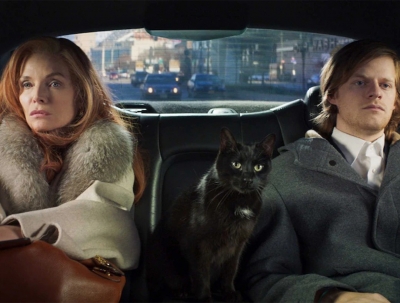Sony
‘My plan was to die before the money ran out,’ says Manhattan socialite Frances Price (Michelle Pfeiffer) when confronted with the fact that, after a lifetime of wealth and privilege, she is soon to become insolvent. This rationalisation on the part of our glamorous, widowed heroine tells us a lot about her, and a lot about the film French Exit: they are both unfailingly sardonic, somewhat ill-conceived, and utterly preoccupied with death. The film comes from the Patrick deWitt’s 2018 novel of the same name, and deWitt serves as the sole screenwriter. This also marks the second collaboration between deWitt and director Azazel Jacobs (Terri, 2011), which suggests a certain synergy, a healthy creative continuity from page to screen. It’s all the more disheartening, then, that the film adaptation feels so unfocused; a collection of missed opportunities hinged around a stellar central performance from Pfeiffer.
... (read more)Pedro Almodóvar has often infused his work with a certain amount of autofiction. In his début, Pepi, Luci, Bom (1980), the Spanish auteur presented us with the burgeoning La Movida Madrileña, the cultural explosion that emerged in Madrid following General Franco’s death in 1975. This was the world in which he lived, and by offering us a glimpse inside, he set the tone for his career.
... (read more)Quentin Tarantino is one of the most innovative living auteurs in English-speaking cinema. The films that made him – Reservoir Dogs, Pulp Fiction, Inglorious Basterds, and Kill Bill: Volume. 1 and 2 – are triumphs of hyper-stylised violence. Once Upon a Time in … Hollywood, Tarantino’s ninth film, though, is an outlier ...
... (read more)


